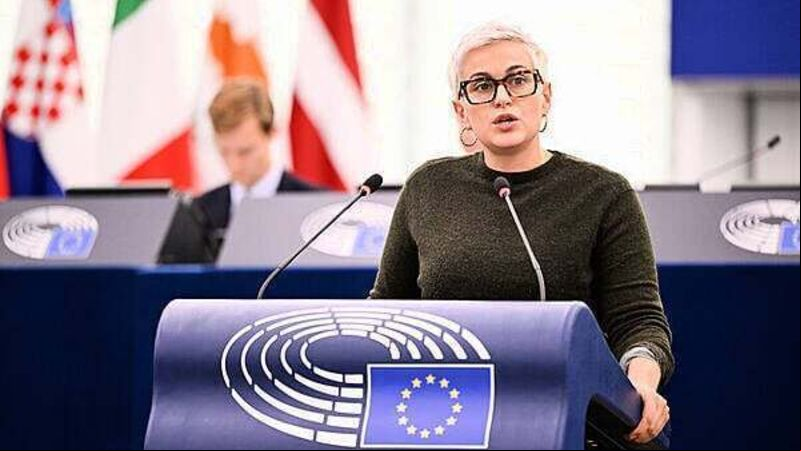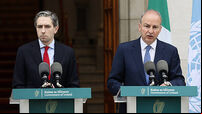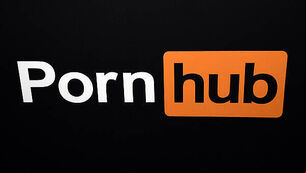Irish MEP reveals she had to 'really think' to spot deepfake of herself

James Cox
A Fine Gael MEP has said she "really had to think" about whether a deepfake photo of her was real, as she highlighted issues around the misuse of fake images.
Speaking to BreakingNews.ie, Maria Walsh said the emergence of an online bank of deepfake images of Irish politicians and public figures highlights the need for urgent action at EU and national levels.
Two images of Ms Walsh appeared on the site.

Ms Walsh said: "The two images of myself... one I knew was fake because of the way it was styled, with the other I had to think about for a second whether it was me or not, which is alarming in itself that you can't detect it as quickly with the naked eye.
"I knew one wasn't real but I really had to think about the other one, because there's so much out there from my Rose of Tralee days and then when I entered into politics.
"We need the detection tools and experts in the immediacy, not just in the next five years."
Deepfake likenesses of other politicians on CivitAI included the likes of Simon Harris, Micheál Martin, Helen McEntee, Mary Lou McDonald, Hildegarde Naughton, Roderic O'Gorman and Pearse Doherty.
Ms Walsh was at a regional development discussion in Galway on Thursday, where she said one student raised the issue of cybersecurity and deepfakes.
"Afterwards she told me she was undertaking a body of work on deepfakes because of friends sharing things they've heard of that are synthetically created imagery.
"I also spoke to a father whose daughter had been a victim of a deepfake that had done the rounds.
"Once images are up, it's incredibly difficult to get them removed.
"We're moving at a snail's pace at the moment."
Ms Walsh is a member of the European Parliament’s Gender Equality Committee, and she said fake sexual images and videos are the most common misuse of deepfakes.
Women and girls make up 99 per cent of the impacted victims.
"They're incredibly difficult to detect; I had to look twice to see 'is this me?'
"These are innocent photos, not sexually explicit deepfakes but they are out there.
"Once an image is up there and your life goes on, firstly you might not even know it's there, secondly if you're applying for jobs, internships, mortgages, your identity is online. To have no control of what people see when it's synthetically created is a terrifying avenue that we are allowing to happen.

"I know I haven't been involved in any sexually explicit photography or video, but the problem is Mary or Joe up the road does not know that, and that really is what it boils down to. It moves from the fun of the viral Pope in a puffer jacket picture, to people really deciding who you are as a person.
"As a woman who is trying to get more women into politics, particularly at a time with this deepfake content, it's hard to tell people 'put your hand up and get involved'. If we don't create better legislation and stand up for this, make people creating this stuff able, then we will have a very different democracy."
Ms Walsh said more has to be done to hold people who create and circulate deepfakes responsible for their actions.
"As an Irish MEP sitting on committees like gender equality and justice and home affairs in the European Parliament, I feel we are creating acceptance for platforms to protect people making these images, making it easier for people to access the application to create these.
"When we accept platforms like Meta removing their fact-checkers on one side of the world, and say 'this is not our shores', but images impact us worldwide regardless of whether it's in Co Mayo or Indiana.
"We deal with this at a national and European level, Coco's Law does some but not all, the EU AI Act does some but not all, and what we're not doing is we're not punishing the person who creates the content.
"Those creating the applications to make it, the platforms allowing it online when it should be fact checked and removed, and the person sitting behind a phone and keyboard doing this."
Ms Walsh pointed to projections from Europol, the law enforcement agency of the European Union, which predict by 2026 an excess of 96 per cent of what the average person sees online will be synthetically created.
She said it is even more important that European countries take a stand as the likes of US president Donald Trump and billionaire Elon Musk regularly share deepfake images.
Just this week, Mr Trump shared an AI-generated 'Trump Gaza' video, which contained footage of what Gaza would look like in his much-condemned plans of making it the 'Riviera of the Middle East'.
Donald Trump has no issue with sharing synthetically made pictures and videos if it s the polarisation he's creating.
"The speed of these images is eroding our democracy. What we see, we believe. The power of leadership and words from these superpower states has an impact.
"Donald Trump has no issue with sharing synthetically made pictures and videos if it s the polarisation he's creating. When you have Irish politicians doing it, it sends us down the road of populism.
"Particularly with such unstable geopolitics, this is dangerous. We're drinking the Kool-Aid."
She added: "How do you protect free speech, and protect those who are vulnerable to deepfakes and disinformation?
"When it comes to deepfakes and synthetically created audio and video where the goal is to water down and damage democracy, it's not free speech anymore that's fascism.
"That's sadly what we're seeing played out with leaders like President Trump and Elon Musk.
"We're seeing more of it in the European circuit with leaders like Viktor Orban [Hungarian prime minister]. The dangerous thing is algorithms pick that up, and people end up just consuming deepfakes."












